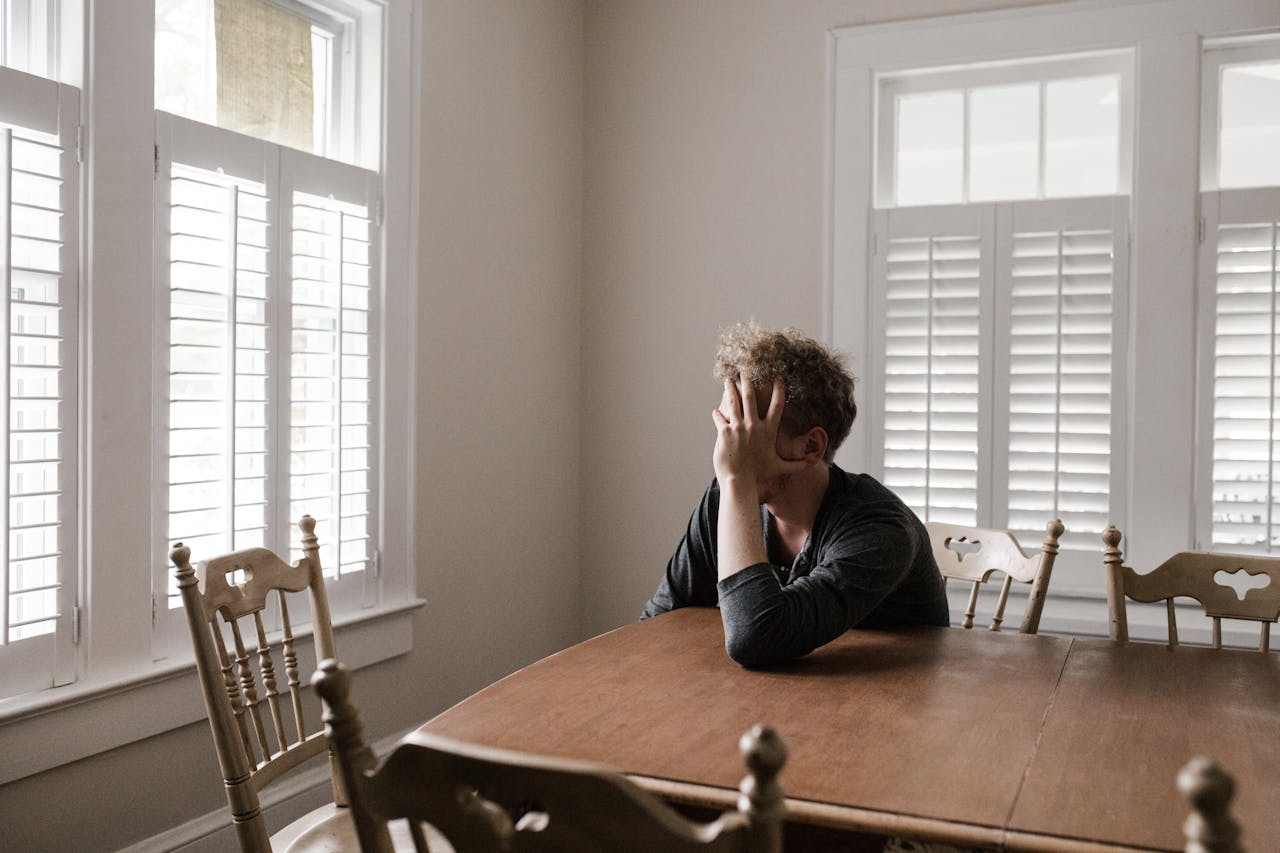In this article, we will explore the intricate relationship between mental health and anxiety. Understanding the connection between the two is crucial for effectively managing and treating both conditions. We will delve into the factors that contribute to anxiety disorders, how they impact mental health, and strategies for coping with these challenges. Join us as we unravel the complexities of this important link and learn how to navigate the path to better mental well-being.
Table of Contents
Understanding Mental Health
Definition of Mental Health
Mental health refers to a person’s emotional, psychological, and social well-being. It involves how individuals think, feel, and act as they cope with life’s challenges. Mental health also affects how people handle stress, relate to others, and make decisions.
Factors Influencing Mental Health
There are various factors that can influence an individual’s mental health, including:
Genetics: Research has shown that genetic factors can play a role in mental health conditions such as anxiety and depression. Individuals with a family history of mental illness may be at a higher risk of developing these conditions themselves.
Trauma: Experiencing trauma, such as abuse, neglect, or a significant life event, can have a lasting impact on mental health. Traumatic experiences can lead to conditions like post-traumatic stress disorder (PTSD) and anxiety disorders. Biological Factors: Imbalances in brain chemistry or hormonal changes can contribute to mental health disorders. For example, an imbalance of neurotransmitters like serotonin and dopamine can lead to symptoms of anxiety and depression.
Environmental Factors: Environmental factors such as living conditions, socioeconomic status, and access to healthcare can also affect mental health. Stressful environments or lack of social support can increase the risk of developing mental health conditions.
- Lifestyle Choices: Choices such as diet, exercise, and substance use can impact mental health. Healthy lifestyle habits like regular physical activity and balanced nutrition can improve overall well-being and reduce the risk of mental health issues.
By understanding the definition of mental health and the factors that influence it, individuals can take steps to prioritize their mental well-being and seek support when needed.
Understanding Anxiety
Anxiety is a common emotion experienced by individuals in response to stress or fear. It is a natural reaction that helps us deal with dangerous situations and can be beneficial in certain circumstances. However, when anxiety becomes excessive or uncontrollable, it can have a negative impact on an individual’s mental health and overall well-being.
Definition of Anxiety
Anxiety is defined as a feeling of unease, worry, or fear that can vary in intensity and duration. It is often accompanied by physical symptoms such as increased heart rate, sweating, and trembling. Anxiety can manifest in different ways and can be triggered by various factors, including work stress, personal relationships, or traumatic events.
Types of Anxiety Disorders
There are several types of anxiety disorders, each with its own set of symptoms and characteristics. Some common types of anxiety disorders include:
- Generalized Anxiety Disorder (GAD): Individuals with GAD experience excessive worry and anxiety about everyday events and situations.
- Panic Disorder: People with panic disorder experience sudden and intense episodes of fear, known as panic attacks.
- Social Anxiety Disorder: This type of anxiety disorder involves an intense fear of social situations and interactions.
- Phobias: Phobias are irrational and intense fears of specific objects or situations.
Symptoms of Anxiety
The symptoms of anxiety can vary from person to person and may include:
- Feeling restless or on edge
- Difficulty concentrating
- Irritability
- Muscle tension
- Sleep disturbances
- Panic attacks
- Avoidance of certain situations
It is important to recognize the symptoms of anxiety and seek help if you or someone you know is struggling with anxiety. Proper treatment and support can help individuals manage their anxiety and improve their mental health.
The Relationship Between Mental Health and Anxiety
Anxiety and mental health are closely intertwined, with one often impacting the other. Understanding the connection between the two can help individuals better manage their symptoms and seek appropriate treatment.
Impact of Mental Health on Anxiety
Poor mental health can significantly contribute to the development and exacerbation of anxiety disorders. Conditions such as depression, PTSD, and OCD can all increase one’s susceptibility to experiencing anxiety symptoms. Additionally, chronic stress and unresolved trauma can also play a role in the onset of anxiety disorders.
Anxiety as a Symptom of Mental Health Issues
Anxiety can also manifest as a symptom of underlying mental health issues. For example, individuals with generalized anxiety disorder may also struggle with depression, while those with social anxiety disorder may have low self-esteem and feelings of inadequacy. Recognizing and addressing these underlying mental health issues is crucial in effectively managing anxiety symptoms.
Treating Mental Health to Alleviate Anxiety
Treating mental health conditions is essential in alleviating anxiety symptoms. This may involve therapy, medication, lifestyle changes, and self-care practices. By addressing the root cause of anxiety through mental health treatment, individuals can experience significant relief from their symptoms and improve their overall well-being.
Final Thoughts:
The link between mental health and anxiety is a complex and intricate connection that requires further understanding and research. By recognizing the impact of mental health on anxiety and vice versa, individuals can take proactive steps to manage their symptoms and improve their overall well-being. It is important to seek support from mental health professionals, engage in self-care practices, and cultivate a strong support system to address both mental health concerns and anxiety effectively. Through education, awareness, and open communication, we can work towards breaking the stigma surrounding mental health and anxiety, and ultimately lead healthier and happier lives.
FAQs:
What is the link between mental health and anxiety?
The link between mental health and anxiety is complex and multifaceted. Anxiety disorders can often be symptomatic of underlying mental health issues, such as depression or trauma. Conversely, poor mental health can exacerbate feelings of anxiety.
How do I know if my anxiety is related to a mental health condition?
If your anxiety significantly interferes with your daily life, relationships, work, or other activities, it may be a sign of an underlying mental health condition. Consulting with a mental health professional can help provide clarity and guidance.
What are some common mental health disorders associated with anxiety?
Anxiety disorders, such as generalized anxiety disorder (GAD), panic disorder, social anxiety disorder, and specific phobias, often co-occur with other mental health conditions like depression, bipolar disorder, and post-traumatic stress disorder (PTSD).
How can I manage anxiety and improve my mental health?
Effective management strategies may include therapy (such as cognitive-behavioral therapy), medication, lifestyle changes (such as exercise, diet, and stress reduction techniques), and building a strong support network. It’s important to find approaches that work best for you in consultation with healthcare professionals.
What role does self-care play in addressing mental health and anxiety?
Self-care practices, including mindfulness, relaxation techniques, hobbies, and self-compassion, can play a crucial role in managing anxiety and improving overall mental health. Prioritizing self-care can help reduce stress levels and build resilience.
Are there any resources available for individuals struggling with mental health and anxiety?
Yes, there are numerous resources available, including mental health hotlines, support groups, online forums, and informational websites. Seeking help and support from qualified professionals and peers can be empowering and instrumental in your journey toward better mental health.
Can untreated anxiety lead to more severe mental health issues?
Yes, untreated anxiety can potentially lead to more severe mental health issues over time. Chronic stress and anxiety can impact both physical and mental health, increasing the risk of developing other conditions such as depression, substance abuse disorders, and even cardiovascular problems. Seeking early intervention and treatment is crucial.







